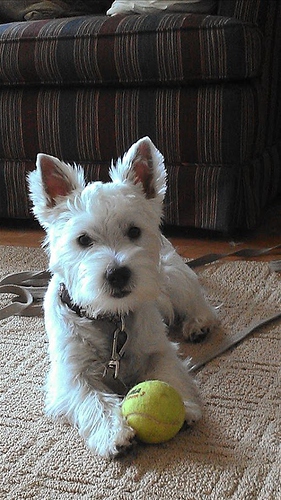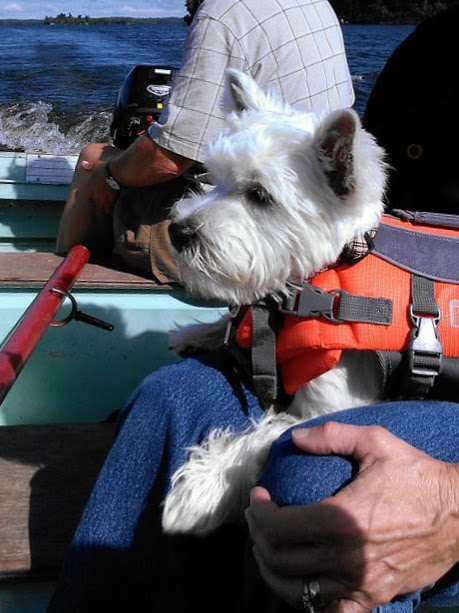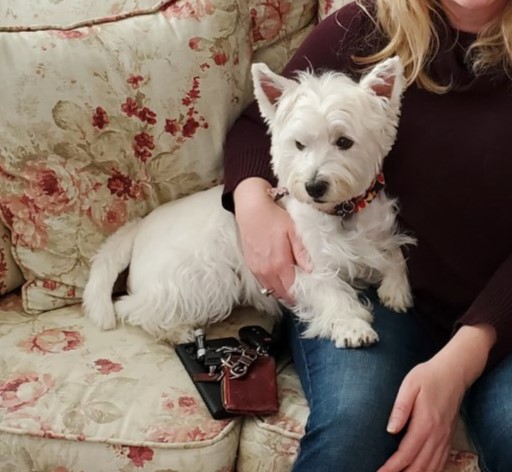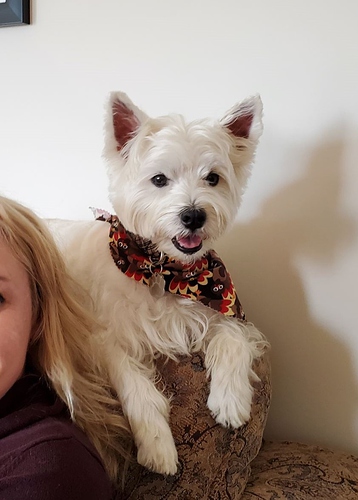I will fully admit that I haven’t read this book, but it’s highly recommended by the dog trainer that I’ve listened to on a local radio station for years. Whenever someone calls in and mentions that they have an adult dog that bites/snaps she recommends this book to help understand the dog’s point of view and how to help overcome it.
People Training for Good Dogs by Melissa Berryman
In the meanwhile it might be helpful to employ something that I’ve recently become very familiar with as we have a 10 week old puppy - the house line. It allows you to manage dogs in the house without having to reach to grab their collar, which can sometimes be seen as an aggressive posture by the dog.
We use a cheapie 6 foot leash with the loop cut off or a homemade version from a piece of poly rope and a snap. With a puppy he’s either in his crate/ex-pen or under supervision with the house line attached. If it’s time to go outside for a potty break but he has different ideas you can just step on the line, pick it up and say “let’s go” without having to chase/grab the puppy.
When we first got him I used marker training to teach the him that good things happen when I do grab his collar and put the line on, so he has no problems with us doing that because there was no negative association.
Good luck to you!


 )
)





